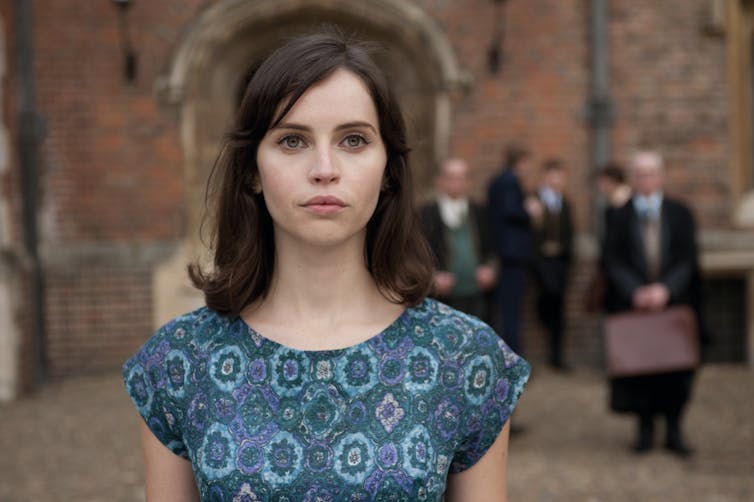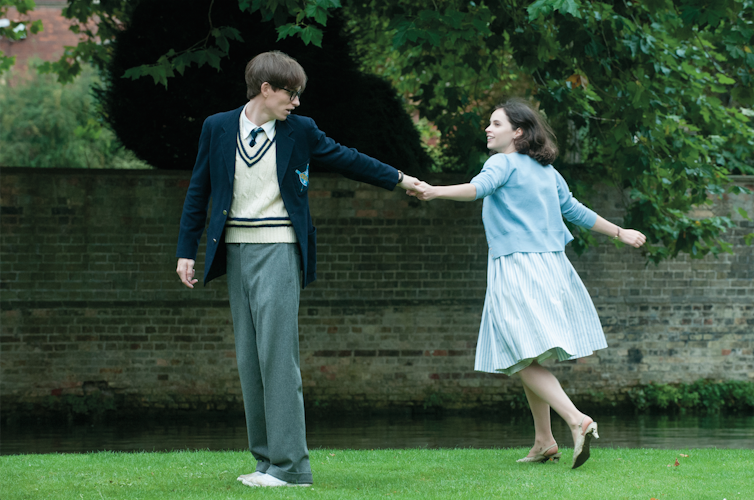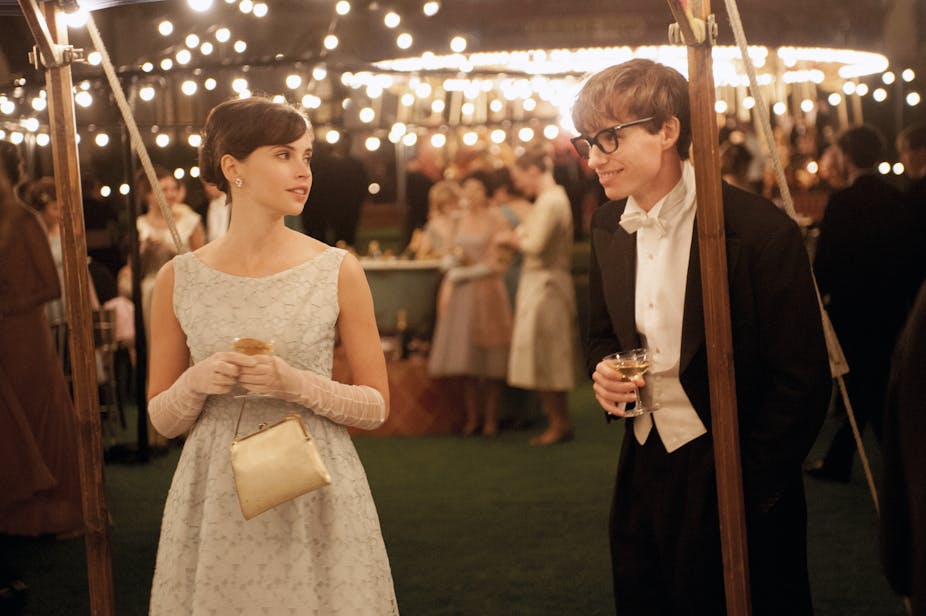The Theory of Everything is a film about two people who meet at university and fall in love. But what makes it remarkable is that one of them is Professor Stephen Hawking and that when he and Jane Wilde get married, they do so in the knowledge that Hawking is suffering from a terrible and debilitating disease and is unlikely to live for much more than two years.
Eddie Redmayne’s portrayal of Hawking is perfect – we could almost be watching the man himself. So much so, that when Hawking himself saw the film for the first time he posted on Facebook: “At times, I thought he was me.”
At the beginning of the film, before Hawking’s diagnosis of motor neurone disease, Redmayne plays Hawking as a slightly awkward young man. He’s unsure of what to do with his hands and is a little stooped – although this seems to be more a preemptive apology for clumsiness than it is the early onset of his symptoms. As the disease takes hold he begins walking with sticks, then using a wheelchair and eventually becomes the professor now well-recognised for his speech synthesiser. Throughout the movie the depiction of Hawking remains believable and tasteful. Hawking is shown to be brave, determined, charming and witty in the face of his illness.

Likewise, Felicity Jones is wonderful as Hawking’s wife. As the film is based on Jane Wilde Hawking’s book, Travelling to Infinity: My Life with Stephen, one does wonder whether her character might have been less flattering had it been written by someone else. That said, no blows are softened as she is shown becoming steadily bitter and resentful of the relationship she entered into once believing that it would be so brief. Hawking is not always helpful. His tendency to put a brave face on their problems sometimes blinds him to how much his wife is struggling to cope.
Given that this is at its heart a love story, a biopic about the couple, it is surprising how little of Wilde is in it. We see her as wife, mother and carer and we discover that she likes singing, but she functions largely as a way of telling the audience about Hawking. Her own PhD (in romance languages) is only briefly mentioned at the very beginning of the film and we don’t hear about it again. We know nothing of what she worked on during her time as a graduate student or of what she did later. This is a shame – she’s clearly an intelligent academic in her own right and to ignore this sells her short.
Meanwhile, Hawking’s specialist subject – time – is repeated over and over. It is referred to in every other conversation. Either about how Hawking works on time, or how little time he has to live, or how he has lived an awfully long time given his condition, or how lucky (or unlucky) they are to have had so much time together as a couple, or that he is writing a book called The Brief History of Time.
And it doesn’t stop here. This is laboured even further with two visual devices. One is a series of home-movie-style montages which pepper the main story to indicate time passing between the various major stages of the couple’s life together. The other is Hawking’s tendency to “zone out” when he has an idea which gives the impression of time slowing down for him while it continues at its usual pace for everyone else. Neither technique is ineffective but it is perhaps a touch patronising of an audience who should really have no trouble keeping up given how regularly they are reminded of Hawking’s research topic.
And just to make certain this point is really hammered home, the film finishes by rewinding all those montages, and here we are at the beginning. Time! What’s it like, eh?

Despite this, the science itself isn’t really touched upon. Perhaps this is deliberate – theoretical cosmology is something of an acquired taste and there certainly isn’t enough time to teach it thoroughly during a two-hour film. However, the few attempts at explaining the basics are a little half-hearted, with multiple scenes where characters are gathered around tables using drinks or dinner as a teaching tool. Aside from being a classic example of telling where showing might have been better the explanations scarcely scratch the surface.
All that aside this is still a very enjoyable film. It was tasteful and engaging and just beautiful visually. It’s the kind of film I want to go see and that I want to tell all my friends to go see, not only because it’s quite a good love story, but because it’s about Stephen Hawking.
I like to see scientists celebrated in films, books and television dramas and that is exactly what happens here. The science itself might be skimmed over but his remarkable achievements and the conditions under which he has been able to realise them are made very clear. This elevates the movie above your standard romance and to something that is – at times – simply inspiring.

